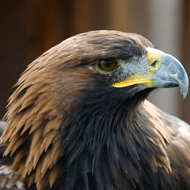
New online maps showing raptor persecutions in England and Wales have been published, to help police focus their efforts on areas with the highest level of incidents.
The maps, which will be updated annually, show the number of shootings, trappings, poisonings and nest destructions between 2011 and 2015.
They were developed by the Raptor Persecution Priority Delivery Group, which comprises government departments, police and the Crown Prosecution Service, as well as conservation charities and countryside organisations.
In the five-year period covered by the maps, there were 262 incidents, 146 of which were caused by shooting and 66 by poisoning.
North Yorkshire saw the largest number of incidents (39) and will therefore be a priority area, followed by Norfolk (17 incidents), Cumbria (11), Derbyshire (11), Lincolnshire (10), Suffolk (8) and Northumberland (8).
Wildlife Minister Thérèse Coffey said: “Birds of prey are a vital part of our animal landscape, icons of our cultural heritage and key to boosting local economies by attracting visitors to England and Wales.
“These maps highlight hotspots across the country for crimes against these precious birds, enabling the police to crack down with increased enforcement in areas where it’s needed most – building on the valuable work land management, conservation and shooting organisations are already doing to help protect iconic birds of prey.”



 The BSAVA has opened submissions for the BSAVA Clinical Research Abstracts 2026.
The BSAVA has opened submissions for the BSAVA Clinical Research Abstracts 2026.